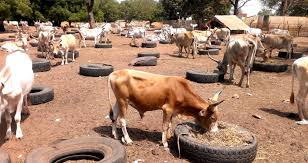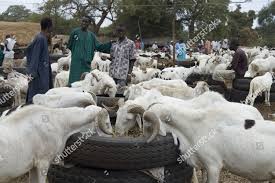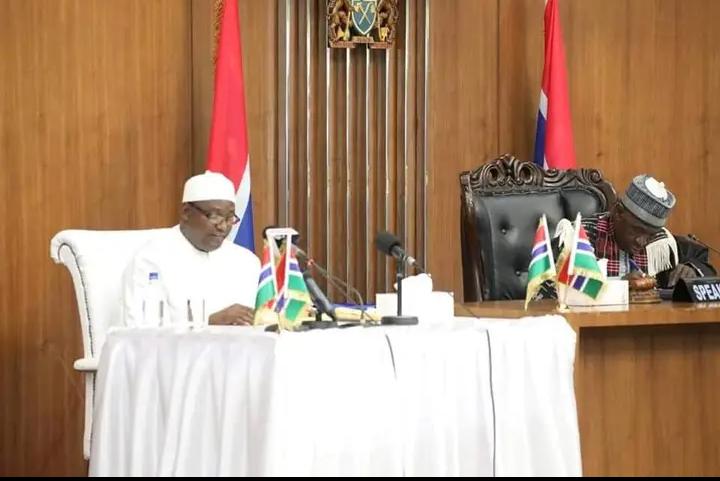THE GAMBIA: Spends $17.5 million on meat importation in five years.
Cattle and small ruminant traders such as sheep and goats at the Abuko Abattoir opined that, the Gambia does not have enough animals to supply meat to the Gambian market for a month-long-period without extra supplies from Senegal or Mali.
The traders made these claims on Thursday 16 April 2020, following an interview with Kairaba News Network.
The outbreak of the coronavirus pandemic has serious ramifications across all sectors of trade and business in the Gambia. Besides, the subsequent indoor policy measures taken by government of the Gambia against Coronavirus has made matters worse for animal traders at the Abuko main Abattoir, the country’s biggest animal selling point.
Gibbi Kah, an animal trader said, the outbreak of the coronavirus has put all businesses at a standstill more especially the buying, and selling of livestock such as cows, sheep and goats in the country and beyond. Kah usually buys sheep and goats at the Wassu Local Market Day locally called (Loumo) to bring them to Abuko for resale, but since the coronavirus pandemic and the subsequent suspension of all weekly market activities known as (Loumo), he can no longer have adequate supply.
“We are just spending and no cash is coming in our way. We buy animal feeds daily and there are no buyers since all of them are asked to stay at home these days.” he further lamented.
He explained that, they used to buy cows and sheep from Senegal, but since the closure of borders amid coronavirus, there is no means of embarking on such trade activities.
“This poses a grave danger for both the country and people.” he added.
For Biram Bah, another animal trader at Abuko abattoir said, having access to livestock is now difficult but, the most devastating part is people are no longer coming out to buy our stock due the state of public emergency declared by the government.
Bah usually bought his livestock from Sareh Bojo, a village that is located in the Upper River Region almost 250 kilometers east of the Capital City Banjul.
Bah, sometimes, usually crosses the border to Senegal to purchase livestock for onward transportation to Abuko, a practice he can no longer carryout amid the closure of the borders between the Gambia, Senegal and Mali.
Many of the livestock traders believe that, the Gambia does not have enough livestock that could serve the country for a period longer than one month without importing supplies from neighboring countries.
They argued that, if things remain like this for months, the future looks grimed because, the price of meat could escalate due to livestock scarcity in the country.
Some people at the Abuko Abattoir attributed the coronavirus outbreak to what they described as the “decadence and social vices of human society” in today’s world adding that has created an era of uncertainties.
Meanwhile, the FAO, the Gambia with a population of 1.8 million (2013 Census) and an annual population growth rate of 3.5%, the country depends to a large extent on meat importation to meet national demand for meat. Annually, the country spends huge sums of foreign currency on importation of meat and edible meat offal.
From 2011 to 2015, the importation of meat was estimated at about 45,000MT at an estimated cost of about $17.5million.
There is both the potential and the need to increase domestic meat production and this requires effective planning and investment in the livestock sector that is according to the Food and Agriculture Organization of the Gambia Office.
By: Mr. Yero S. Bah
For Kairaba News Network






Leave A Comment